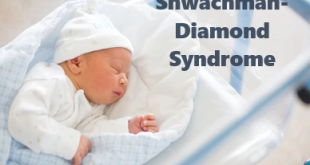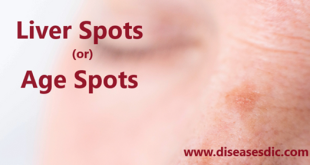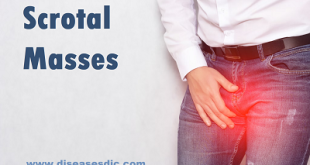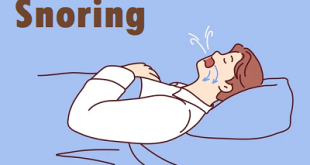Overview
Pruritus, also known as itchy skin, is an unpleasant sensation that prompts the desire to scratch the affected area. It can occur in various parts of the body and may range from a mild annoyance to a severe, debilitating condition. Pruritus can be caused by numerous factors, including skin disorders, allergies, insect bites, dry skin, certain medications, and underlying health conditions such as liver or kidney disease, thyroid disorders, and diabetes. In some cases, pruritus can also be a symptom of an underlying psychological issue, like stress or anxiety. The sensation of itching is mediated through specialized nerve fibers in the skin, which respond to various stimuli and send signals to the brain, triggering the urge to scratch. While scratching provides temporary relief, it can exacerbate the condition, leading to skin damage, infection, and further discomfort.
Managing pruritus involves identifying and addressing the underlying cause. This often begins with a thorough medical evaluation to determine the root of the itching. Treatment options may include topical creams or ointments to soothe the skin, antihistamines to reduce allergic reactions, moisturizers to combat dry skin, and lifestyle modifications to minimize triggers. Additionally, managing stress and anxiety through relaxation techniques and, in some cases, counseling can be beneficial. In more severe cases, prescription medications or phototherapy (light therapy) may be recommended. Effective management of pruritus not only alleviates the physical discomfort but also improves the patient’s overall quality of life by reducing the psychological impact associated with chronic itching.
Types of Pruritus
There are several different types of pruritus categorized by the cause of itchiness and the location of the itch on your body. Some of the most common types of pruritus include:
- Brachioradial pruritus: Itching of the upper arm caused by nerve damage.
- Nocturnal pruritus: Itching that occurs at night with several possible causes that include a reaction to your body’s natural functions, a reaction to a medication or contacting a skin irritant.
- Pruritus ani: Itching of the skin surrounding your anus caused by hemorrhoids, an infection or a skin irritant.
- Senile pruritus: Itching caused by changes to your skin that affects people over the age of 65.
- Uremic pruritus: Itching occurs as a symptom among people diagnosed with renal disease who receive dialysis.
Prevalence of Pruritus
Pruritus, or itching, is a widespread symptom experienced by people of all ages and backgrounds. Its prevalence is influenced by various factors, including underlying health conditions, environmental triggers, and lifestyle choices. Individuals with skin disorders, allergies, and systemic diseases like kidney or liver failure are often prone to chronic itching. Older adults are more susceptible due to aging-related skin changes, and environmental factors such as harsh weather conditions can exacerbate the sensation. Additionally, lifestyle choices like poor skincare routines or the use of irritating products can contribute to pruritus. Consequently, pruritus affects a significant portion of the population, impacting their quality of life. Proper diagnosis and management, along with lifestyle adjustments, are crucial in addressing this common and uncomfortable symptom.
Pathophysiology
Pathophysiology depends on the underlying disease. Itch may be induced or modulated by many different mediators, including histamine, acetylcholine, catecholamines, haemokinins, chemokines, cytokines (interleukin 2, interleukin 31), neuropeptides, endothelin, endovanilloids, endocannabinoids, hormones of the hypothalamus-pituitary axis, kallikreins, proteases, prostaglandins, leukotriene B4, neurotrophic peptides, and opioids. A specific neuronal pathway for itch has been identified. Pruritic stimuli are transmitted mainly by mechano-insensitive unmyelinated afferent C-fibres that have a particularly low conduction velocity, large innervation territories, and high transcutaneous electrical threshold.
In the spinal cord, the pruritic stimuli are transferred by specific pruriceptive neurons of dorsal horns to the posterior part of the ventromedial thalamic nucleus, which projects to the dorsal insular cortex. Itch pathway neurons have been identified in the spinal cord showing expression of gastrin-releasing peptide receptors. Induced itch stimuli co-activate the anterior cingulate cortex, supplementary motor area, and inferior parietal lobe predominantly in the left hemisphere.
Following itch induction, the multiple activated sites in the brain argue against the existence of a single itch centre and reflect the multidimensionality of pruritus. Importantly, it has been demonstrated that the brain activity in patients suffering from chronic itch upon pruritic stimuli differs significantly from that observed in healthy subjects.
What are the signs and symptoms of Pruritus?
The most common pruritus symptoms include:
- Itchiness, which is sometimes accompanied by noticeable changes in the appearance of the skin, but not always.
- Signs of skin inflammation, including swelling and redness.
- Bumps, spots or blisters forming on the skin.
- Dry, cracked skin (similar to eczema).
- Leathery or scaly texture to the skin.
- Sometimes scabbing, discoloration or long-term damage to your skin due to infection or other complications.
Symptoms of pruritus will differ from person to person depending on the underlying cause.
Causes of Pruritus
Causes of itchy skin include:
- Skin conditions. Examples include dry skin (xerosis), eczema (dermatitis), psoriasis, scabies, parasites, burns, scars, insect bites and hives.
- Internal diseases. Itching on the whole body might be a symptom of an underlying illness, such as liver disease, kidney disease, anemia, diabetes, thyroid problems and certain cancers.
- Nerve disorders. Examples include multiple sclerosis, pinched nerves and shingles (herpes zoster).
- Psychiatric conditions. Examples include anxiety, obsessive-compulsive disorder and depression.
- Irritation and allergic reactions. Wool, chemicals, soaps and other things can irritate the skin and cause rashes and itching. Sometimes a substance, such as poison ivy or cosmetics, causes an allergic reaction. Also, reactions to certain medicines, such as narcotics to treat pain (opioids) can cause itchy skin.
Sometimes the cause of the itching can’t be determined.
What are possible complications?
Because pruritus can be due to serious diseases, failure to seek treatment can result in serious complications and permanent damage. Once the underlying cause is diagnosed, it is important for you to follow the treatment plan that you and your healthcare professional design specifically for you to reduce the risk of potential complications including:
- Adverse effects of treatment
- Scarring
- Secondary skin infections due to scratching
- Spread of cancer
- Spread of infection
- Lesions on breast
Risk factors of Pruritus
Here are the risk factors for pruritus:
- Underlying Health Conditions: People with liver or kidney disease, diabetes, thyroid disorders, or certain cancers are at higher risk.
- Skin Disorders: Conditions like eczema, psoriasis, or dermatitis increase the likelihood of experiencing itching.
- Allergies: Allergic reactions to substances like pollen, animal dander, or certain foods can lead to pruritus.
- Age: Older adults are more prone due to natural changes in the skin, making it drier and more susceptible to itching.
- Dry Skin: Insufficient skin moisture, often caused by weather, frequent hot showers, or harsh soaps, can trigger itching.
- Medications: Some medications, especially those affecting the liver, can cause pruritus as a side effect.
- Pregnancy: Pregnant women might experience itching due to hormonal changes and stretched skin.
- Stress and Anxiety: Emotional stress and anxiety can exacerbate itching or make it feel more intense.
- Environmental Factors: Exposure to irritants like harsh fabrics or certain chemicals can contribute to pruritus.
- Genetic Predisposition: A family history of skin disorders or allergies can increase the risk of developing pruritus.
Pruritus diagnosis
Diagnosing the cause of itchy skin starts with a physical exam and questions about your medical history. If your health care provider thinks your itchy skin is the result of a medical condition, you might have tests, including:
- Blood test. A complete blood count can provide evidence of an internal condition causing your itch, such as anemia.
- Tests of liver and kidney function. Liver or kidney disorders and thyroid conditions, such as hyperthyroidism, can cause itching.
- Chest X-rays. A chest X-ray can show if you have enlarged lymph nodes, which can go along with itchy skin.
Treatment for Pruritus
The treatment of pruritus, or itching, depends on the underlying cause. Here are common approaches to managing and alleviating itching:
- Identify and Address the Underlying Cause: A thorough medical evaluation is crucial to determine the root cause of itching. Treating the underlying condition often leads to relief from pruritus.
- Topical Treatments: Depending on the cause, doctors may prescribe or recommend over-the-counter creams or ointments containing hydrocortisone, calamine, or menthol to soothe the itchy skin and reduce inflammation.
- Antihistamines: Oral antihistamines like diphenhydramine (Benadryl) can help alleviate itching caused by allergies. Non-drowsy options are available for daytime use.
- Moisturizers: Regular use of fragrance-free moisturizers and emollients can help keep the skin hydrated, especially after bathing, to prevent dryness and itching.
- Avoid Irritants: Identify and avoid triggers such as harsh soaps, detergents, and irritating fabrics. Opt for mild, fragrance-free products.
- Cool Compresses: Applying cool, damp cloths to the itchy area can provide temporary relief and reduce inflammation.
- Relaxation Techniques: Stress and anxiety can exacerbate itching. Practices like deep breathing, meditation, or yoga can help manage these triggers.
- Prescription Medications: In cases of severe itching, doctors may prescribe stronger medications like corticosteroids, immunosuppressive drugs, or certain antidepressants to alleviate symptoms.
- Phototherapy (Light Therapy): This treatment involves exposing the affected skin to controlled amounts of natural or artificial light under medical supervision, which can be effective for certain skin conditions causing pruritus.
- Avoid Scratching: Although difficult, avoiding scratching is crucial to prevent skin damage and infection. Keeping nails short, wearing gloves at night, or using distraction techniques can help control the urge to scratch.
It’s essential to consult a healthcare professional for proper diagnosis and personalized treatment options tailored to the specific cause of pruritus.
Prevention of Pruritus
Itchy skin can be prevented by following these steps:
- Using skin moisturizers & creams daily to prevent dry skin
- Moisturizing the skin after taking a shower
- Using sunscreen to prevent skin damage & sunburns
- Showering/bathing in lukewarm water
- Using soap that won’t harm or irritate the skin
- Reducing the use of synthetic fabrics & wool
- Using a humidifier
To understand more about the possible causes, treatment & prevention of itchy skin, get in touch with us.
Home remedies
The following home remedies may help reduce itching:
- Drinking more water to help keep skin hydrated
- Using a high-quality moisturizing cream on the skin and applying it at least once or twice each day
- Applying a cool, wet compress to the affected area
- Applying an anti-itch cream to relieve symptoms, such as nonprescription hydrocortisone cream
- Taking a lukewarm bath
- Choosing mild soaps without dyes or perfumes
- Using mild or unscented laundry detergent
- For people with allergies or sensitivities, avoiding specific substances that cause a skin reaction, such as nickel, jewellery, and wool
Perhaps the most important self-care measure is to avoid scratching. Scratching can ultimately lead to further inflammation and damage to the skin and can worsen the itching.
 Diseases Treatments Dictionary This is complete solution to read all diseases treatments Which covers Prevention, Causes, Symptoms, Medical Terms, Drugs, Prescription, Natural Remedies with cures and Treatments. Most of the common diseases were listed in names, split with categories.
Diseases Treatments Dictionary This is complete solution to read all diseases treatments Which covers Prevention, Causes, Symptoms, Medical Terms, Drugs, Prescription, Natural Remedies with cures and Treatments. Most of the common diseases were listed in names, split with categories.








Pls what is the strongest and more efficacious drug and cream to be used?
For pruritus or itchy skin, various treatments include topical steroids, antihistamines, and moisturizers. Topical calcineurin inhibitors may be prescribed for specific conditions. Prescription-strength medications like oral corticosteroids or immunosuppressants might be necessary in severe cases. Consultation with a healthcare professional is crucial for accurate diagnosis and a personalized treatment plan. Avoid self-medication and seek professional guidance for persistent or severe itching.